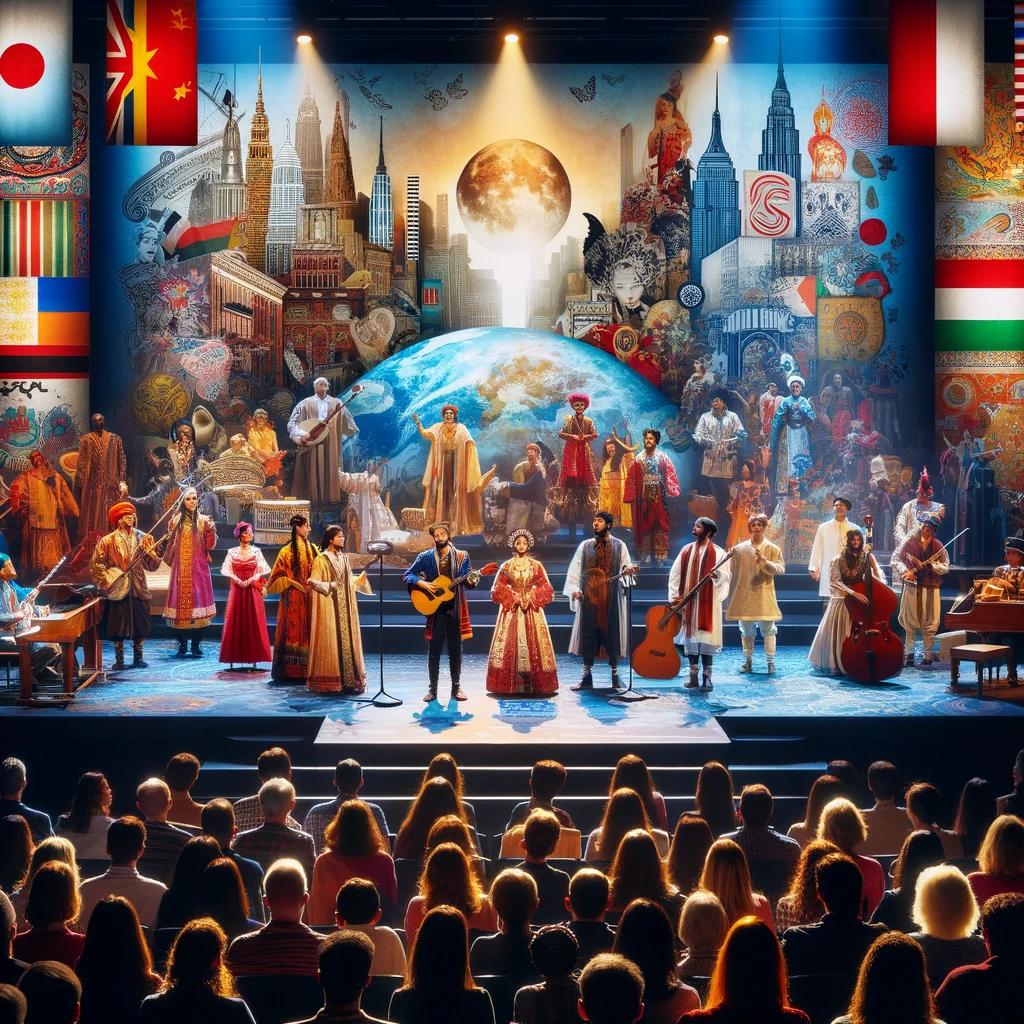In the tapestry of the world’s cultures, the theatre has long been a vibrant thread, weaving stories that transcend boundaries and connect us across the global stage. In every corner of the planet, from the bright lights of Broadway to the traditional puppet theatres of Indonesia, the stage is a universal language spoken in a multitude of accents, each telling the human story.
Theatre as a Cultural Exchange The global stage is rich with diversity, showcasing a variety of narratives that reflect the vast array of human experiences. These stories, whether they originate in Mumbai, London, or Buenos Aires, speak to universal themes of love, conflict, triumph, and tragedy. Director Elena Martinez remarks, “When we share stories from different cultures, we participate in an exchange that is both enlightening and enriching.”
Breaking Boundaries with International Collaborations Collaborations across countries and continents are breaking the boundaries of traditional theatre. Joint productions between international companies create a melting pot of styles, techniques, and perspectives. Playwright Aarav Singh observes, “International collaborations are challenging but immensely rewarding. They are testaments to the unifying power of art.”
Festivals: Celebrating World Theatre Theatre festivals around the globe, like the Edinburgh Festival Fringe or the Avignon Festival, serve as hubs for this cultural exchange. Here, the global stage comes to life, showcasing performances that range from the experimental to the classical, giving voice to a world of stories. Festival curator Chloe Dupont notes, “Festivals are the beating heart of the global stage, pumping new life into the art form with each season.”
Innovations in Global Storytelling Technology has expanded the reach of the global stage, allowing live performances to be streamed to audiences worldwide. Virtual reality experiences are also providing new ways to experience theatre, breaking down geographical barriers and opening up a world of possibilities. Tech entrepreneur Raj Patel says, “We’re using technology to bring the global stage into the homes of people everywhere, making theatre accessible to all.”
Educational Outreach and Development Theatre companies around the world are engaging in educational outreach, using theatre as a tool for development and social change. Workshops and performances are used to educate and empower, addressing issues from health to social justice. “Theatre has the power to inform and transform communities,” shares outreach coordinator Lina Kim.
The Rise of Multilingual Productions Multilingual productions on the global stage are a testament to the power of theatre to communicate beyond language barriers. These performances often feature subtitles or incorporate multiple languages, celebrating the diversity of their audiences. “Multilingual theatre is a reflection of our global society,” says actor and advocate Diego Sanchez.
The Impact of Cross-Cultural Performances Cross-cultural performances enrich the global stage by challenging audiences to look at the world through a different cultural lens. They offer a platform for dialogue and understanding, fostering empathy and global awareness. “Every cross-cultural performance is a step towards global solidarity,” asserts director Amelie Girard.
The Future of Global Theatre As we look to the future, the global stage is poised to become even more interconnected. Collaborative technologies, cross-cultural exchanges, and international touring productions will continue to shape the evolution of theatre, making it a truly global art form. “The future of theatre is without borders,” says producer Li Wei.
The global stage is a powerful reminder that the theatre is not just an art form but a vital force for unity, understanding, and change. It is where the heartbeat of the world’s stories can be felt most strongly, inviting us all to take our seat in the universal audience.
This article celebrates the role of theatre as a global phenomenon, exploring the myriad ways in which it acts as a cultural ambassador, an educational tool, and a unifying force that transcends geographic and linguistic divides.


